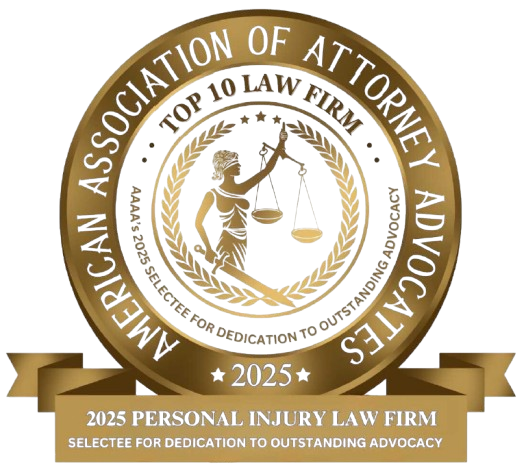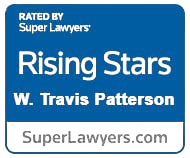Statistics over five years show that more than 41.57 million rental cars are used yearly in the United States. Rental car accidents can be particularly complicated due to the involvement of multiple parties, including rental car companies, insurance providers, and third parties.
Whether you were driving the rental car or were hit by someone in a rental vehicle, seeking legal help is crucial to protect your rights and ensure you receive the compensation you deserve.
At Patterson Law Group, our car accident lawyer in Fort Worth is experienced in handling the challenges associated with rental car accidents and is here to guide you through the process.
Differences Between Rental Car Accidents and Regular Car Accidents
While the basic principles of car accidents apply to both rental and regular vehicle accidents, several additional layers make dealing with rental car cases more challenging:
- Rental Agreements: Understanding the terms of your rental agreement is crucial, as it may contain clauses that affect liability, insurance coverage, and your rights following an accident.
- Insurance Coverage: Determining which insurance policy applies—your insurance, the rental company’s coverage, or a credit card policy—can be complicated.
- Multiple Parties Involved: Besides the drivers, other parties, like the rental car company or the vehicle manufacturer, may also bear responsibility, depending on the circumstances of the accident.
Common Causes of Rental Car Accidents
Several factors contribute to the higher risk of accidents when driving a rental car:
- Unfamiliarity with the Vehicle: Drivers may not be accustomed to the handling, controls, or size of the rental vehicle, leading to mistakes or misjudgments on the road.
- Driving in Unfamiliar Areas: Many rental car drivers are traveling in areas they do not know well, increasing the likelihood of missing signs, making wrong turns, or encountering unexpected road conditions.
- Rental Car Condition: In some cases, rental vehicles may not be maintained to the same standards as personal vehicles, potentially leading to mechanical failures or other issues.
Common Types of Rental Car Accidents in Texas
Rental car accidents in Texas can take many forms, depending on the circumstances. Some of the most common collisions we see include:
- Rear-End Collisions: These crashes are often a result of distracted driving or following too closely. Rear-end crashes can result in significant injuries, particularly to the neck and back.
- Intersection Accidents: Misjudgments or unfamiliarity with local traffic patterns can lead to accidents at intersections, often resulting in side-impact collisions.
- Single-Vehicle Accidents: These occur when a driver loses control of the rental car, possibly due to unfamiliarity with the vehicle or road conditions. It may also occur due to a vehicle defect.
- Multi-Vehicle Pileups: In busy areas or during heavy traffic, rental cars may become involved in multi-vehicle accidents, leading to complex liability issues.
Who Is Liable in a Rental Car Accident?
Determining liability in a rental car accident can be complex due to the involvement of various parties. Liability may fall on one or more of the following:
- Another Driver on the Road: If another driver caused the accident, they might be liable for damages.
- The Rental Car Company: The rental company might share responsibility in cases where the rental car was not properly maintained or had defects.
- The Car Manufacturer: The vehicle manufacturer could be liable if a mechanical defect caused the accident.
- Government Entity: Poor road conditions or inadequate signage could make a government entity responsible for road maintenance liable.
Understanding who is liable is crucial for pursuing compensation. A Fort Worth car accident attorney can help you identify the responsible parties and build a strong case.
Determining Liability in Rental Car Accidents
Determining liability in a rental car accident involves investigating the circumstances of the crash and identifying all potentially responsible parties. This process may include:
- Reviewing the Rental Agreement: Your attorney will examine the rental agreement to understand any liability and insurance coverage clauses.
- Investigating the Accident: Gathering evidence, such as police reports, statements provided by witnesses, and vehicle damage assessments, is essential to establish liability.
- Identifying Insurance Coverage: Determining which insurance policy applies—your own, the rental company’s, or a credit card policy—is a key step in seeking compensation.
An accident lawyer in Texas can help you navigate this complex process and ensure you receive the coverage you are entitled to.
Insurance Coverage For Rental Car Accidents
When renting a car, understanding your insurance options is crucial to protect yourself in case of an accident. In general, three types of coverage may be available. These include:
Your Insurance Coverage
Your auto insurance may extend coverage to rental vehicles, but verifying this with your provider is essential, especially regarding liability, collision, and comprehensive coverage.
Insurance from the Rental Car Company
Rental car companies offer various insurance options, such as Collision Damage Waiver (CDW) and Supplemental Liability Protection, which can provide extra peace of mind. However, these can be costly and may overlap with your existing coverage.
Insurance from the Credit Card Company
Credit card companies often offer rental car insurance as a perk, covering damage or theft when you use their card to pay for the rental. This coverage is usually secondary, which kicks in after your primary insurance.
Understanding these insurance options can be challenging if you’re involved in an accident while driving a rental car. Call our Fort Worth rental car accident lawyer to discuss your situation and explore the best action to ensure you are fully protected and receive the compensation you deserve.
Compensation Available to Victims
Victims of rental car accidents may be entitled to various forms of compensation, depending on the circumstances of the accident and the extent of their injuries. Compensation can include:
- Medical Bills: Coverage for hospital stays, surgeries, medication, and ongoing treatment related to your injuries.
- Lost Wages and Reduced Future Earnings: Compensation for any income you experienced during the recovery process. If you cannot work in the future, you may also recover lost earnings.
- Pain and Suffering: Compensation for the physical discomfort and emotional challenges resulting from the accident.
- Emotional Distress: Coverage for the psychological impact of the accident, including anxiety, depression, or PTSD.
- Diminished Quality of Life: Compensation for losing enjoyment in life activities you can no longer engage in due to injuries.
- Damaged Personal Property: Coverage for any personal belongings damaged in the accident.
A Texas injury attorney can help you accurately assess all damages and work to secure the full compensation you deserve.
Rental Car Accident FAQs
Moving forward after a rental car accident can be confusing, especially when dealing with multiple parties and complex insurance policies. To help you better understand your situation, we’ve compiled answers to some of the most frequently asked questions about rental car accidents.
Can I sue a rental car company after an accident?
Yes, you can sue a rental car company if they are found to be liable for the accident. This could occur if the rental car was not properly maintained or if a defect in the vehicle contributed to the accident. An auto accident attorney in Fort Worth can help you determine if the rental company bears any responsibility in your case.
Who pays for the damages if I’m at fault in a rental car accident?
If you are at fault, your auto insurance may cover the damages, depending on your policy. Their coverage might apply if you purchase insurance through the rental car company. If you paid for the rental with a credit card, the card’s insurance coverage might also offer protection.
How long do I have to file a claim after a rental car accident?
In Texas, the statute of limitations for filing a personal injury claim is generally two years from the accident date. It’s important to act quickly to preserve evidence and protect your rights.
Why You Need Our Car Accident Lawyer in Fort Worth
Rental car accidents can be particularly challenging due to the involvement of rental car companies, insurance providers, and potentially other third parties. Understanding the intricacies of rental agreements and the various insurance policies requires legal knowledge beyond standard car accident cases.
An experienced auto accident attorney in Fort Worth can help you overcome these challenges by:
- Navigating the Legal Process: From filing claims to negotiating with insurance companies, your attorney will guide you through each step, ensuring that you follow all legal procedures.
- Understanding Rental Agreements and Insurance Policies: Rental agreements and insurance policies can be complex and confusing. Your attorney will help you interpret these documents and determine which coverage applies to your case.
- Preserving Evidence and Protecting Your Rights: Timely legal action is crucial to preserving evidence, such as vehicle damage, accident reports, and witness statements. Your attorney will work to protect your rights and build a strong case for compensation.
By working with a Fort Worth car wreck lawyer, you can ensure your case is handled with the experience, resources, and attention it deserves.
Contact Our Fort Worth Car Accident Attorney Today
If you have been involved in a rental car accident, don’t wait to get the legal support you need. Contact our experienced auto accident attorney in Fort Worth at Patterson Law Group today. Our legal staff is available 24/7 to provide answers and assist you during this challenging time. With personalized guidance and a dedicated team of attorneys, paralegals, and case managers, you can trust Patterson Law Group to offer the exceptional legal advocacy you deserve at any of our Texas office locations. Reach out now to get started with a free consultation.










